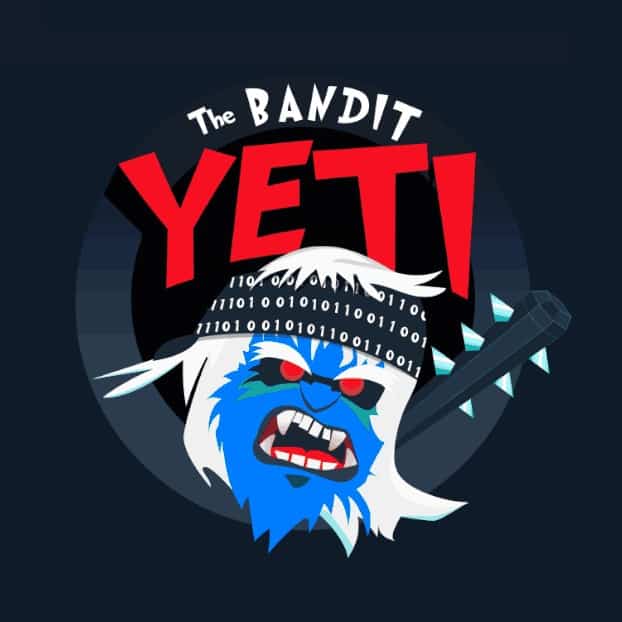
Password Lists and Dictionary Attacks
In this Ethical Hacking guide, we are going to talk about password lists, dictionary attacks, and password cracking with tools like Hydra.
Passwords Lists
A password list, often referred to as a “password dictionary” or simply a “dictionary,” is a collection of words, phrases, or character combinations. Password lists are used for various purposes in the realm of cybersecurity, particularly in password-related activities. These lists can serve different functions, and their contents can vary, but their primary use is typically related to password security and authentication.
RockYou is a well-known and widely used list of passwords, often used for security testing and research. It’s essentially a text file containing a large number of passwords that have been leaked or obtained from various data breaches.
Here’s some information about RockYou.txt and dictionary lists like it:
RockYou.txt:
RockYou.txt gets its name from the RockYou company, which experienced a massive data breach in 2009. The list contains millions of passwords that were part of this breach and other sources. It’s widely used for testing password strength and security, as it represents a significant collection of real-world passwords.
Password Dictionary:
A dictionary list like RockYou.txt is essentially a collection of potential passwords. These lists can be used by security professionals, penetration testers, and hackers to attempt to crack passwords through methods like brute force attacks or dictionary attacks.
Common Passwords:
Dictionary lists like RockYou.txt contain a mix of common, simple, and easily guessable passwords. Many people tend to use passwords that are easy to remember, but this makes them vulnerable to attacks. For this reason, these lists are helpful for security testing to identify weak passwords that should be avoided.
Password Security:
Using a password that appears in a common dictionary list, like RockYou.txt, is not secure. To protect your accounts, it’s essential to use strong, unique passwords for each service or website. This typically involves using a mix of upper and lower-case letters, numbers, and special characters.
Password Cracking:
Cybersecurity professionals use dictionary lists for legitimate purposes, such as testing the strength of their own systems or helping users identify weak passwords. However, cybercriminals can also use these lists to try to gain unauthorized access to accounts.
Password Managers:
To create and manage strong, unique passwords for various online accounts, it’s recommended to use a password manager. These tools can generate and store complex passwords securely.
2FA and MFA:
In addition to strong passwords, using two-factor authentication (2FA) or multi-factor authentication (MFA) adds an extra layer of security to your accounts. Even if someone knows your password, they won’t be able to access your account without the additional authentication method.
What is a Dictionary Attack?
A dictionary attack is a type of cyberattack that involves systematically trying all the words or phrases in a predefined list (referred to as a “dictionary”) to gain unauthorized access to a system or online account. This attack is primarily used to crack passwords, and it relies on the assumption that many users choose weak or common passwords that are present in the dictionary.
Here’s how a dictionary attack typically works:
Dictionary List: Attackers compile a list of words, phrases, and common passwords. This list can include common words, dictionary words, names, popular phrases, and known password combinations (such as “123456” or “password”).
Testing Passwords: The attacker’s software or script systematically tries each password in the dictionary list against the target system, such as a user account or encrypted data.
Comparison: The software or script compares the attempted passwords to the actual password (if known) or against the password hashes in the case of hashed passwords.
Successful Entry: If the attacker finds a match between one of the passwords in the dictionary and the target system’s password, they gain access to the account or data.
Dictionary attacks can be relatively fast and efficient because they don’t involve random password guessing. Instead, they systematically test a large number of common passwords in a short amount of time. This type of attack is particularly effective against accounts with weak, easily guessable passwords, which is why it’s essential to use strong and unique passwords for your online accounts.
Hydra
Hydra is a popular and versatile password cracking tool and brute force attack tool that is widely used by cybersecurity professionals, penetration testers, and in some cases, by malicious hackers. It is designed to automate and streamline the process of trying various combinations of usernames and passwords to gain unauthorized access to computer systems, applications, and services.
Here are some key features and uses of Hydra:
Password Cracking:
Hydra is primarily used for password cracking. It can systematically try different combinations of usernames and passwords in an attempt to discover the correct credentials for accessing a target system or service.
Multiple Protocols:
Hydra supports a wide range of protocols, making it suitable for various authentication mechanisms. Some of the supported protocols include SSH, FTP, HTTP, RDP, Telnet, SMB, VNC, and many others. This flexibility allows it to target a variety of services.
Brute Force and Dictionary Attacks:
Hydra can perform both brute force attacks and dictionary attacks. In a brute force attack, it systematically tries every possible combination of characters, while in a dictionary attack, it uses a predefined list of words or passwords to attempt to gain access.
Parallel Processing:
Hydra is capable of parallel processing, which means it can attempt multiple login combinations simultaneously, making it more efficient and faster in its password-cracking attempts.
Customization:
Users can configure Hydra with various options, such as specifying which protocols to target, setting up custom wordlists for dictionary attacks, and defining the number of parallel threads to use during the cracking process.
Legitimate Uses:
Ethical hackers and cybersecurity professionals often use Hydra as a legitimate tool to assess the security of systems and identify vulnerabilities. It helps organizations identify weak or easily guessable passwords and strengthen their security.
Security Testing:
System administrators and security experts use Hydra to perform security testing and penetration testing to ensure the robustness of their systems and to patch vulnerabilities before malicious hackers can exploit them.
Warning:
It’s important to note that using Hydra or similar tools for unauthorized or malicious purposes is illegal and unethical. Ethical hacking and security testing should only be performed with proper authorization and for legitimate, responsible purposes. Unauthorized use of such tools can lead to legal consequences.
Conclusion
Dictionary attacks are used very often in the cybercriminal world. To protect against dictionary attacks and other password-related threats, it’s recommended to use strong, complex passwords or passphrases that are difficult to guess. Additionally, enabling two-factor authentication (2FA) or multi-factor authentication (MFA) can provide an extra layer of security, even if an attacker manages to guess or obtain your password.
Happy Hacking Folks!
Read more of our Ethical Hacking guides here: Ethical Hacking Guides
Recommendations:
Basic Security Testing with Kali Linux: https://amzn.to/3S0t7Vq
ALFA Network Wi-Fi Adapter: https://amzn.to/3QbZ6AE
This Wi-Fi adapter is essential if you are to learn Wi-Fi Hacking.




